To ask is a natural act of consciousness in its search for knowledge. Learning to learn means having the ability to direct and take responsibility for one’s own learning, for keeping oneself up-to-date, for knowing where to look for knowledge. This type of learning is radically different from ‘acquiring itemized codified information or factual knowledge’, as often stressed in conventional curriculum. Rather it implies ‘the mastering of the instruments of knowledge themselves’.
Pillars of Learning in Holistic Education
Holistic education has identified four pillars of learning for the 21st century, which are also recognized by UNESCO.


Emphasizes the importance of developing practical skills and the ability to apply knowledge in real-world contexts, particularly in the context of work and productive activities. This pillar recognizes the importance of vocational and technical education in providing learners with the skills they need to succeed in the workforce. However, it also acknowledges that the nature of work is changing rapidly in the knowledge-based economy, and that the skills needed to succeed are increasingly focused on interpersonal relationships, adaptability, and innovation.
It goes beyond traditional skills training to encompass a broader set of behavioral skills and attitudes, such as the ability to work in teams, take initiative, and solve problems creatively. These skills are essential for success in the knowledge-based economy, where individuals must constantly adapt to new challenges and opportunities. Ultimately, “learning to do” is about empowering individuals to take control of their own learning and to become active agents in shaping their own future.
It focuses on learning to live responsibly, respecting, and cooperating with other people and, in general, with all the living organisms on the planet. Learning must overcome prejudice, dogmatism, discrimination, authoritarianism and stereotypes, and all that leads to confrontation and war. The fundamental principle of this pillar of learning is interdependence, that is, knowledge of the network of life.
It emphasizes on the discovery of true human nature, and encounter with the essence of oneself, which goes beyond the psychic apparatus of thoughts and emotion. ‘Learning to be’ may therefore be interpreted in one way as learning to be human, through acquisition of knowledge, skills and values conducive to personality development in its intellectual, moral, cultural and physical dimensions. This implies a curriculum aiming at cultivating qualities of imagination and creativity; acquiring universally shared human values; developing aspects of a person’s potential: memory, reasoning, aesthetic sense, physical capacity and communication/social skills; developing critical thinking and exercising independent judgment; and developing personal commitment and responsibility.
